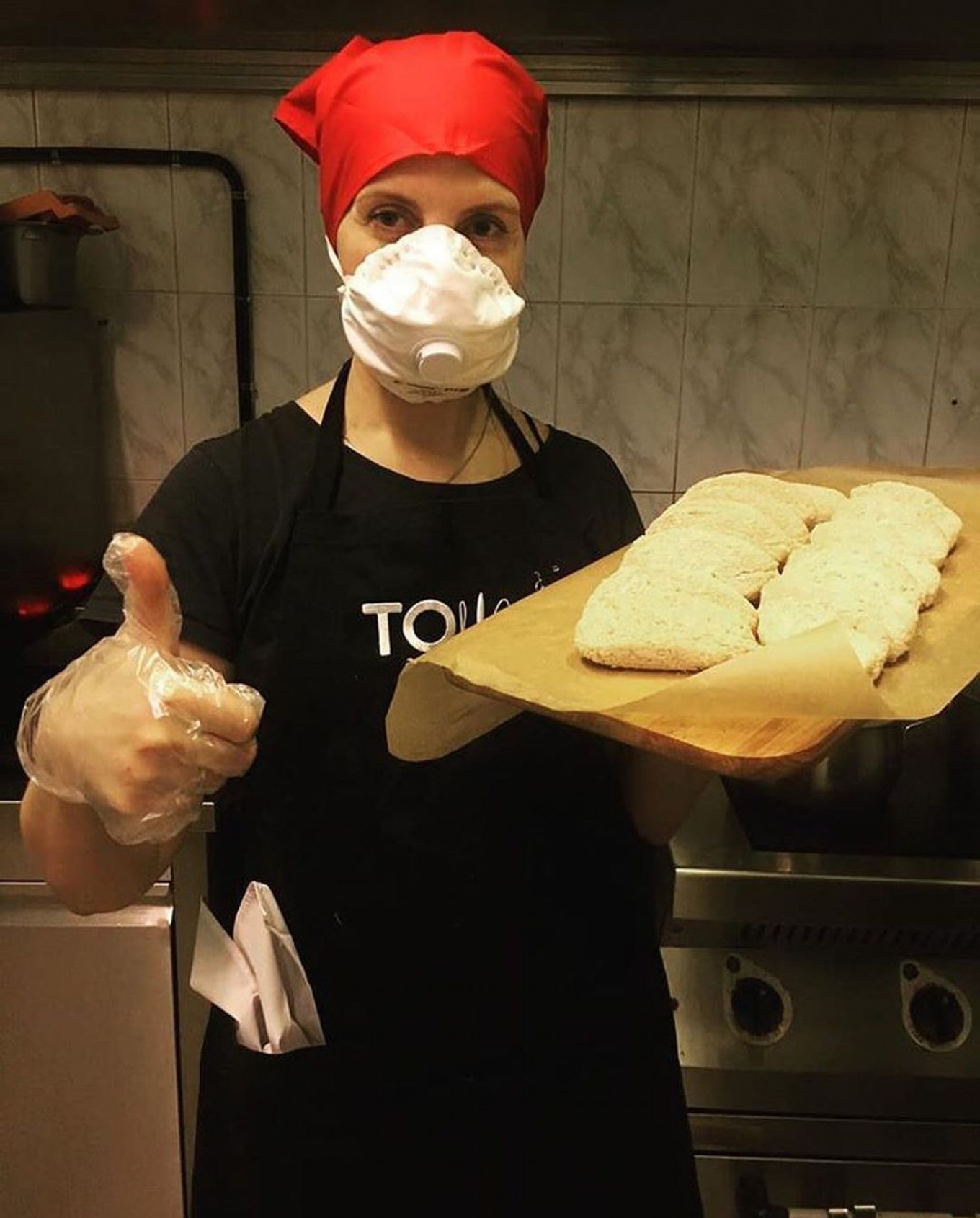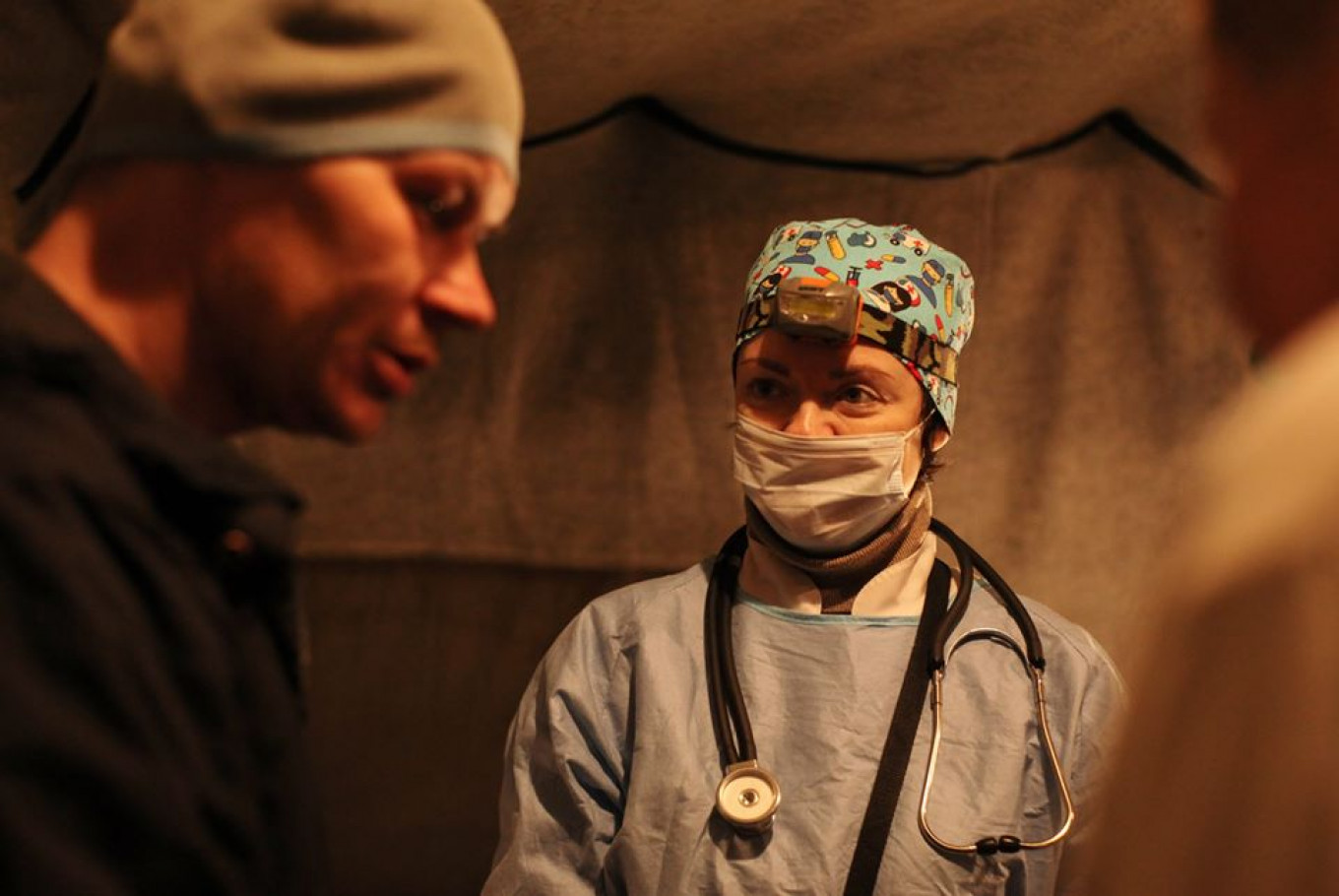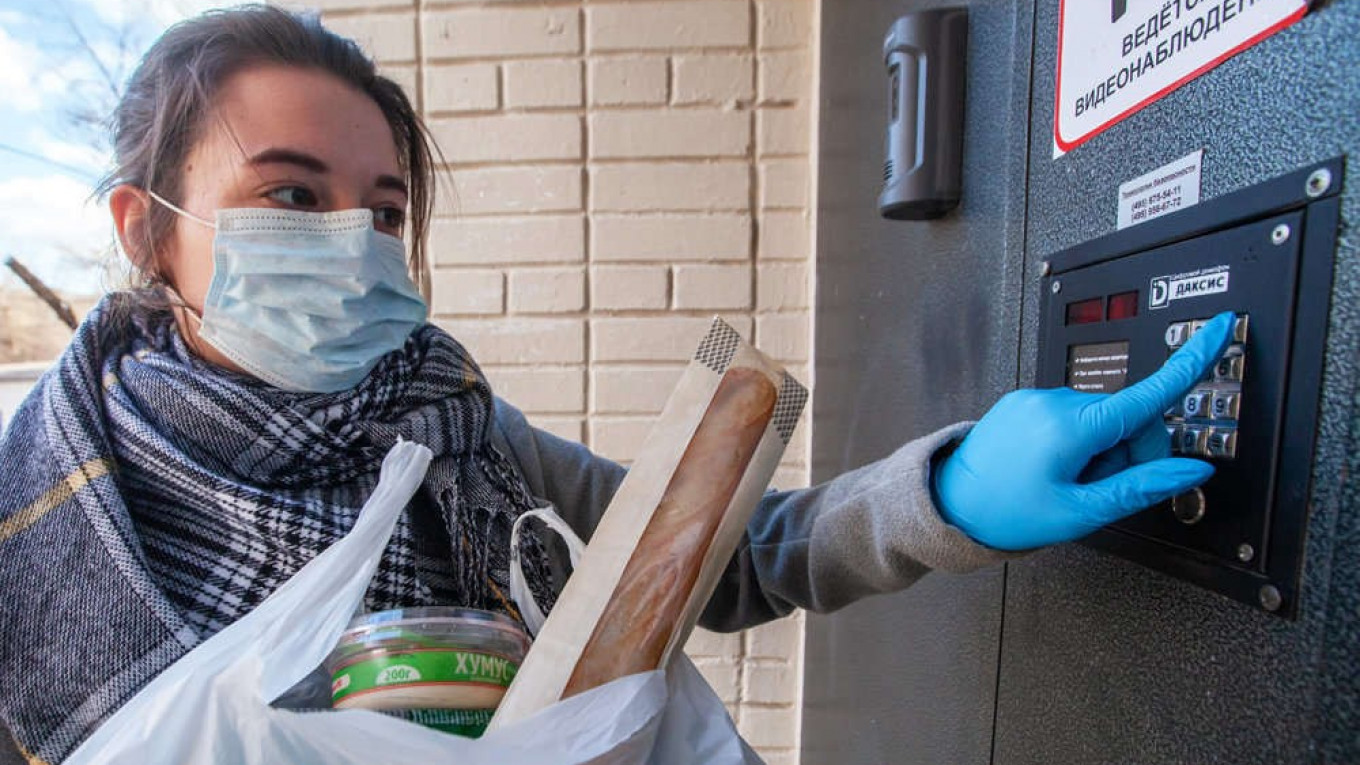"This is your chance to help people who need to stay at home now to be safe," says Russian actor Nikita Kukushkin in a video watched by more than 300,000 people. Kukushkin shows what he’s doing to help his neighbors: leaving canned and packaged food in a bag for anyone to take, asking them to leave notes about what they need. Kukushkin’s goal: to create an Instagram flashmob using the hashtag #ЯВПОМОЩЬ (#IComeToHelp).
Kukushkin is not the first to mobilize people to help their neighbors or strangers survive the pandemic. The online volunteer project #covidarnost — a play on solidarity and COVID — uses the platforms of Telegram and VKontakte — a popular Russian social media platform like Facebook — to help people get assistance in their neighborhood. It provides not only services like grocery shopping, but psychological counseling as well. Sasha Krylenkova, one of the project initiators, told The Moscow Times that, “What with the pandemic and related restrictive measures, we can't even imagine what challenges we will have to deal with. So the most important thing now is to help and get help from our neighbors, people close to us.”
Daniil Pospelov, a volunteer at #covidarnost, told The Moscow Times that he wasn't worried about getting the virus. He said he started volunteering when he realized the scale of the problem. "I have some time. I understand the seriousness of the problem, and some friends asked if I wanted to help with #Covidarnost. So I got involved."
In another volunteer project, supported by the Russian government, companies and volunteers teamed up for the #МЫВМЕСТЕ (eng. #Wearetogether) initiative. Started by Volunteer Medics, the Association of Volunteer Centers and the online platform dobro.ru, there are now 9,000 volunteers, 700 companies and groups involved. There is a free telephone number people can call to request assistance. Homebound elderly people or others who should not go outside call and ask for volunteers to help them with errands, shop for them, or assist them in other ways.

"Our movement is made up of people who are not indifferent — volunteers, entrepreneurs and anyone who wants to unite to support other people during this pandemic,” a Volunteer Medics spokesperson told The Moscow Times. Volunteers sign up on the #МЫВМЕСТЕ website to buy groceries or medications and deliver them straight to the door of the person in need. In about a week, volunteers created aid headquarters in every Russian region.
Armen Avakyan, who volunteers with Volunteer Medics in Moscow, joined right away. "They could use all the help they could get, so I signed up immediately. We get instructed on what to wear, and we have enough anticeptic and gloves."
Another non-governmental organization (NGO), Civic Assistance Committee, has started to deliver groceries to refugees and migrant families. The NGO Nasiliu.net (Stop.Violence) continues to provide assistance on hotlines to help women and families in need. "As the quarantine begins, we are about to sail into a perfect storm of domestic violence,” said Anna Rivina, head of Nasiliyu.nyet. "So it's important to continue our work online." She is, however, realistic about the limited help they can provide right now. "I am worried that we are bad at tracking domestic violence in normal times, let alone during a pandemic," she said.
Nochlezhka (Shelter) provides aid to homeless people. Daria Baybakova, head of the Moscow branch of Nochlezhka, told The Moscow Times that, "We expect a growth of homeless people, which usually happens in a crisis. At the same time, donations are decreasing due to the difficult financial situation. We realize that we have a hard time ahead," she said. But she added that "our projects that help to meet basic needs are continuing so people have food and don't have to sleep on the street. We do face the major challenge of hygiene. Our volunteers are trying to minimize the number of people in the same place to protect people from being infected with the coronavirus."

Some cultural institutions and businesses are also offering their help. Theaters, museums and concerts halls are making online performances available, like the legendary Bolshoi Theater in Moscow broadcasting its best classic performances online for free. Yandex Taxi is offering free rides to doctors. And the group Shishki is inviting people for a drink in an online bar on the online platform "Stay The F*** Home Bar."
The idea of mutual aid has a long history in Russia. In 1902 Peter Kropotkin, a Russian philosopher, historian, and anarchist published a collection of essays called, “Mutual Aid: A Factor of Evolution.” Unlike naturalist and biologist Charles Darwin, the father of the evolutionary theory based on “natural selection” and “survival of the fittest,” Kropotkin argued that survival is based on solidarity, or as he put it, “the close dependency of everyone’s happiness upon the happiness of all.”
Whether or not volunteers have read Kropotkin's book or even heard of him, his notion of "mutual aid" is being revived today as Russia faces the coronavirus pandemic.
A Message from The Moscow Times:
Dear readers,
We are facing unprecedented challenges. Russia's Prosecutor General's Office has designated The Moscow Times as an "undesirable" organization, criminalizing our work and putting our staff at risk of prosecution. This follows our earlier unjust labeling as a "foreign agent."
These actions are direct attempts to silence independent journalism in Russia. The authorities claim our work "discredits the decisions of the Russian leadership." We see things differently: we strive to provide accurate, unbiased reporting on Russia.
We, the journalists of The Moscow Times, refuse to be silenced. But to continue our work, we need your help.
Your support, no matter how small, makes a world of difference. If you can, please support us monthly starting from just $2. It's quick to set up, and every contribution makes a significant impact.
By supporting The Moscow Times, you're defending open, independent journalism in the face of repression. Thank you for standing with us.
Remind me later.






